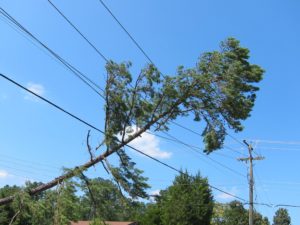This is primarily intended for lawyers practicing in Texas; however, I strongly encourage everyone to read this article and understand the implications of the decision by the Texas Supreme Court in Haygood v. Escabedo.
Under the Texas Civil Practice & Remedies Code, recovery of medical expenses is limited to the amount actually paid or incurred. Tex.Civ.Prac. & Rem.Code §41.0105. The exact language of the statute is as follows:
In addition to any other limitation under law, recovery of medical or health care expenses incurred is limited to the amount actually paid or incurred by or on behalf of the claimant.
Since the enactment of Section 41.0105 in 2003, it has been unclear both to the courts and attorneys as to what the language actually means. The debate among the lawyers and the courts has centered around the meaning of paid or incurred within the statute. Lawyers for for injured parties have claimed that the or in “paid or incurred” means that any amount billed by a medical provider is an incurred expense which can be submitted to the jury as damages on behalf of the injured party. Lawyers for defendants claimed that paid or incurred means only the amount actually due to the medical provider is allowed before the jury.
Factual and Procedural Background
Aaron Haygood sued Margarita De Escabedo for injuries he sustained in a collision with Escabedo’s minivan. Haygood’s injuries required surgeries on his neck and shoulder. Multiple health care providers billed Haygood a total of $110,069.12 but he was covered by Medicare. Accordingly, Haygood’s health care providers adjusted their bills with credits of $82,329.69, leaving a total of $27,739.43. At the time of trial, $13,257.41 had been paid, and $14,482.02 was due. Invoking section 41.0105, Escabedo moved to exclude evidence of medical expenses other than those paid or owed. Haygood, asserting the collateral source rule, moved to exclude evidence of any amounts other than those billed by the health care providers. The trial court denied Escabedo’s motion and granted Haygood’s. At trial, the jury found that Escabedo’s negligence caused the accident and that Haygood’s damages were $110,069.12 for past medical expenses, $7,000 for future medical expenses, $24,500 for past pain and mental anguish, and $3,000 for future pain and mental anguish. The trial court overruled Escabedo’s objection to an award of past medical expenses in excess of those paid or owed and rendered judgment on the verdict. The Tyler Court of Appeals reversed, holding that section 41.0105 precluded evidence or recovery of expenses that neither the claimant nor anyone acting on his behalf will ultimately be liable for paying. The case was then appealed to the Texas Supreme Court.
The primary holdings of the Texas Supreme Court in Haygood v. Escabedo are as follows:
(1) The Texas Supreme Court held that section 41.0105 limits a claimant’s recovery of medical expenses to those which have been or must be paid by or for the claimant;
(2) The Texas Supreme Court held that since a claimant is not entitled to recover medical expenses that a provider is not entitled to be paid, evidence of such charges is irrelevant to the issue of damages. Accordingly, only evidence of recoverable medical expenses is admissible at trial; and
(3) The common-law collateral source rule still applies but does not allow recovery as damages of medical expenses a health care provider is not entitled to charge. The benefit of insurance to the insured is the payment of charges owed to the health care provider. An adjustment in the amount of those charges to arrive at the amount owed is a benefit to the insurer – not the insured.
The problem with the decision by the Texas Supreme Court is that it creates a system where uninsured claimants receive the benefit of having their entire medical bills submitted to the jury whereas insured claimants do not receive the benefit of having their total medical bills submitted to the jury. The benefit of having the total amount of medical bills submitted to the jury, as the Texas Supreme Court previously held, is that the severity of the plaintiff’s injury is a factor that in determining mental anguish damages. Fifth Club, Inc. v. Ramirez, 196 S.W.3d 788, 797-798 (Tex.2006). Consequently, insured claimants whose medical charges are paid by health insurance may find it more difficult to establish evidence supporting an award of mental anguish damages.
At this time, Texas has the highest number of uninsured in the country with more than 27% of the population not having health insurance.
The entire opinion in Haygood v. Escabedo can be found here.
UPDATE:
The Dallas Court of Appeals has distinguished the opinion of the Texas Supreme Court in Haygood v. De Escabedo. In Big Bird Tree Services v. Gallegos, the Dallas Court of Appeals applied Haygood to a situation involving a charitable organization. The Plaintiff did not pay medical expenses since a charity provided medical care. A representative of the charity provided testimony that the charity intended to seek reimbursement for expenses if the plaintiff succeeded at trial. The court held that Section 41.0105 did not preclude recovery of the amount of medical expenses “incurred” by the charity on behalf of the plaintiff.
Call or text (972) 938-1234 or complete a Free Case Evaluation form



